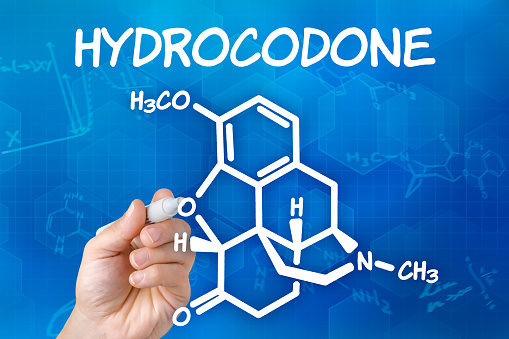
Men and women who use opioids are more likely to have low testosterone, especially if they are older and have certain medical problems, according to research published last year.
Opioids are pain medications, such as hydrocodone, oxycodone, morphine, and codeine. They work by decreasing a patient’s perception of pain.
Testosterone is a hormone that is usually associated with men because it gives them their male characteristics. Women’s bodies produce much smaller amounts.
Scientists analyzed data from the US-based 2011-2012 National Health and Nutrition Examination Survey. They identified 320 men and women who had used prescription opioids in the past 30 days and compared them to 4,909 people who were did not use opioids.
They found that those who used opioids tended to have lower testosterone levels compared to those who didn’t. They also discovered that the odds of having low testosterone were higher for opioid users over 70 and those who had other medical conditions, including cancer, heart disease, diabetes, high blood pressure, and arthritis.
It was unclear how these findings would affect women, as their testosterone levels are typically lower and can be affected by hormones and the menstrual cycle.
For men, it appeared that the testes produced less testosterone. However other factors, including diabetes and high blood pressure, are linked to low testosterone as well, so future research is needed to determine just how strong the association with opioid use is.
The study was published last summer in the journal Pain Medicine.
Resources
HealthDay via Renal & Urology News
“Opioid Use Linked to Low Testosterone”
(January 5, 2016)
http://www.renalandurologynews.com/hypogonadism/opioid-use-linked-to-low-testosterone/article/462834/
National Institute on Drug Abuse
“What are opioids?”
(Last updated: November 2014)
http://www.drugabuse.gov/publications/research-reports/prescription-drugs/opioids/what-are-opioids
Pain Medicine
Cepeda, Maria Soledad MD, PhD, et al.
“Effect of Opioids on Testosterone Levels: Cross-Sectional Study using NHANES”
(Full-text. First published online: July 14, 2015)
You may also be interested in...
Other Popular Articles

What Is Jelqing, and Does It Actually Work?
The term “jelqing” refers to a set of penis stretching exercises that some believe can make the penis bigger. Although the practice has gained attention and popularity in blogs and internet forums in recent years, there is no scientific evidence that it is an effective way to permanently increase the size of one’s penis. In fact, in some cases, jelqing may actually cause damage to the penis, so it is a good idea to get all the facts before setting off to try it.

What Is Sensate Focus and How Does It Work?
Sensate focus is a technique used to improve intimacy and communication between partners around sex, reduce sexual performance anxiety, and shift away from ingrained, goal-oriented sexual patterns that may not be serving a couple.

What Is the Average Penis Size?
If you have ever wondered how your penis compares to others in terms of size, you are not alone. Many men are curious to know how their penises stack up compared to the average. Unfortunately, general curiosity can sometimes give way to full-on obsession and anxiety about penis size. This can be an unhealthy and often unnecessary fixation, especially because most men who think their penises are too small have perfectly normal-sized penises.

Can Sex Reduce Menstrual Cramps?
The SMSNA periodically receives and publishes ‘guest editorials.’ The current article was submitted by Mia Barnes, a freelance writer and researcher who specializes in women's health, wellness, and healthy living. She is the Founder and Editor-in-Chief of Body+Mind Magazine.
Having sex while you experience menstrual cramps is healthy and can provide significant benefits. While it might not be the first activity that comes to mind when your PMS or period cramping begins, many people enjoy sex to reduce menstrual cramps, experience increased pleasure and benefit from other advantages. Learn more about having sex while menstrual cramps are happening and how it can help your body.

What Is Edging and Why Do People Do It?
Edging is the practice of stopping sexual stimulation before reaching orgasm to prolong a sexual experience. The term stems from the concept of approaching the metaphorical “edge” of orgasm but stopping before going over the edge.

The Effect of Regular Aerobic Exercise on Erectile Function
Erectile dysfunction (ED) is the inability to achieve or maintain an erection sufficient for satisfactory sexual activity. As men get older, their erectile functioning may naturally decline due to changes in testosterone levels, cardiovascular functioning, and the potential development of other chronic medical conditions that become more common with age.

